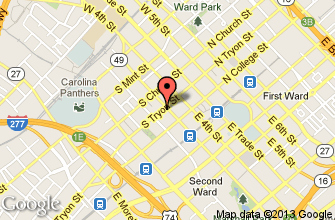News Room
PrintSocial Media Lesson for Employers: Recent $1.5 Million Retaliatory Discharge VerdictAuthored by: Jeremy Stephenson
May
15, 2017
On May 11, 2017, a federal jury in Charlotte, North Carolina awarded a former fire department employee, Crystal Eschert, a $1.5 million verdict in a retaliatory discharge lawsuit that teaches powerful lessons in today’s social media world.
Crystal Eschert was a fire inspector with the Charlotte Fire Department. She had made several complaints to supervisors about the lack of safe construction in a new fire building, going so far as inviting a City Council member to tour the facility with her; City Council has direct jurisdiction over the Fire Department. This was going well outside the normal chain of command.
These events occurred around the same time as the shooting of Michael Brown in Ferguson, Missouri. Ten days later, Ms. Eschert made a “private” posting on Facebook viewable only by her “friends”:
"White guy shot by police yesterday near Ferguson . Where is Obama? Where is Holder? Where is Al Sharpton? Where are Trayvon Martin's parents? Where are all the white guys supporters? So is everyone MAKING it a racial issue? So tired it's a racial thing. If you are a thug and worthless to society, it's not race - You're just a waste no matter what religion, race or sex you are."
Someone forwarded her Facebook post to her supervisors who terminated her employment, despite consistently positive performance reviews, saying it was because of the Facebook post and not because of her recent complaints about lack of safety. The jury disagreed and awarded $1.5 million. At trial, Plaintiff’s counsel presented several other instances of individuals making highly offensive statements also on Facebook, who were not fired, but only received warnings.
Lessons Learned
Increasingly managers want to be “Facebook friends” with their subordinates and coworkers, and vice versa. This should generally be avoided, as employees may express information in such forums that the company might not otherwise know. For example, a company could gain actual knowledge of an employee’s debilitating health condition and be required to enter into a reasonable accommodation dialog.
Similarly, employers should be cautious taking disciplinary action against employees based solely upon employees’ social media posts. Posts about working conditions could be protected under the National Labor Relations Act. Issues of consistency of enforcement, or discriminatory disparate enforcement, may quickly arise and be difficult to manage across a large workforce, as in the present case. Employers should never ask employees for social media logins nor insist they be “friends,” and this may be illegal in some jurisdictions. While some social media postings by employees may clearly cross the line, employers and managers should be very cautious in taking employment actions.




















